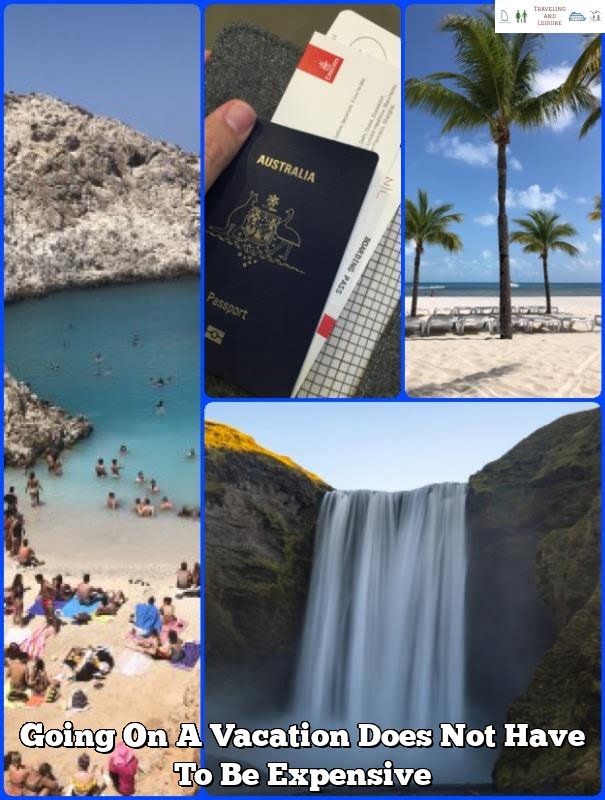How expensive are weddings? Many people dream of their wedding day since they were young, but the reality of the costs can be overwhelming. From the venue to the catering and everything in between, weddings can quickly become a major financial commitment.
In this article, we will break down the average cost of weddings, explore the factors that influence these costs, and provide tips for planning a wedding on a budget. Whether you’re currently planning your own wedding or simply curious about wedding expenses, this comprehensive guide will give you an insight into the true cost of saying “I do”.
The national average cost of weddings has been steadily increasing over the years, leading many couples to wonder how they can afford their dream day within their budget. We will analyze and break down these numbers to give you a clearer understanding of what to expect when it comes to wedding expenses. Additionally, we will discuss the factors that influence wedding costs, such as the venue, guest count, and more.
Planning a wedding on a budget doesn’t mean sacrificing your vision for your special day. Our Wedding Budgeting 101 section provides practical tips and advice for creating a beautiful celebration without breaking the bank. We will also delve into hidden wedding costs that many couples overlook when planning their big day. By exploring these topics in detail, we aim to help readers gain a better understanding of how to plan financially wisely for their upcoming nuptials.
National Average Wedding Cost
The national average wedding cost can be a major concern for couples who are planning to tie the knot. Understanding just how expensive weddings can be is important for setting realistic expectations and creating a budget that works for you. Let’s break down the numbers to see exactly what the average cost of a wedding looks like and what it includes.
Current National Average
According to recent data, the national average cost of a wedding in the United States is around $33,900. This number can vary greatly depending on location, with some cities having much higher average costs than others. It’s important to take this into consideration when planning your budget.
What Does This Cost Include?
The average wedding cost includes expenses such as venue rental, catering, floral arrangements, photography, entertainment, and more. It’s essential to consider all of these factors when budgeting for your big day. Additionally, this cost can also encompass pre-wedding events like engagement parties and rehearsal dinners.
Budgeting Wisely
Understanding the national average wedding cost is crucial for setting a realistic budget that works for you and your partner. By breaking down the numbers and understanding what they include, you can make informed decisions about where to allocate your funds and look for creative ways to cut costs without sacrificing the quality of your special day.
Factors That Influence Wedding Costs
When it comes to planning a wedding, there are several factors that can influence the overall cost. One of the biggest expenses for a wedding is the venue. The location, size, and type of venue can greatly impact the cost of the event. For example, a popular luxury hotel in a major city will likely be more expensive than a local community center or outdoor garden.
Another important factor that influences wedding costs is the guest count. The number of people attending the wedding directly correlates to the amount of food, beverages, and seating needed for the event. It’s important for couples to carefully consider their guest list in order to stay within their budget.
In addition to venue and guest count, other factors that can impact wedding costs include the time of year, day of the week, and even time of day. For example, getting married during peak wedding season (usually spring and summer) may result in higher prices for venues and vendors. Similarly, getting married on a Saturday night is typically more expensive than choosing a weekday or Sunday for the wedding.
As couples plan their weddings, it’s important to keep these factors in mind when considering their budget. By understanding how these different elements influence costs, couples can make informed decisions about where to allocate their funds in order to create their dream wedding while staying within their financial means.
| Factor | Influence on Cost |
|---|---|
| Venue | Location, size, type |
| Guest count | Directly impacts food, beverages, seating |
| Time of year/day/week | Affects prices for venues and vendors |
Wedding Budgeting 101
Planning a wedding on a budget can be a daunting task, but with the right tips and strategies, it is definitely achievable. Here are some valuable tips for couples who want to have the wedding of their dreams without breaking the bank:
- Set a realistic budget: Determine how much you can afford to spend on your wedding and stick to that budget. Consider all your sources of funding, including personal savings, contributions from family members, and any financial assistance you may receive.
- Prioritize your expenses: Decide on what aspects of the wedding are most important to you as a couple. Whether it’s the venue, food, or photography, allocating more of your budget to these priority items will ensure that you get the things that matter most to you.
- Get creative with DIY projects: From making your own invitations and centerpieces to creating your own wedding favors, there are plenty of opportunities for do-it-yourself projects that can save you money.
Another great way to save on wedding expenses is by being flexible with the date and time of your wedding. Consider having a weekday or Sunday wedding instead of a Saturday, which is typically more expensive. Moreover, booking off-season dates can also result in significant cost savings. By considering these tips and thinking creatively about how to stretch your dollars, it’s possible to have a beautiful and memorable wedding without going over budget.
Hidden Wedding Costs
When it comes to planning a wedding, there are often hidden costs that couples forget to account for in their budget. To prevent any financial surprises, it’s important to be aware of these potential expenses. Here are some hidden wedding costs that you should keep in mind as you plan your big day:
- Marriage License: Before you can legally tie the knot, you’ll need to obtain a marriage license from your local government office. The cost of this varies by location, so be sure to check the requirements and fees in your area.
- Alterations: While many brides and grooms factor in the cost of their wedding attire, they often forget about the additional expenses for alterations. Whether it’s hemming a dress or adjusting the fit of a suit, alterations can add up quickly.
- Gratuities: It’s customary to tip certain wedding vendors, such as the caterer, bartender, and hairstylist. These gratuities are often overlooked when creating a budget but can significantly impact your overall expenses.
These are just a few examples of hidden wedding costs that can catch couples off guard. By being aware of these potential expenses from the beginning, you can better prepare for them and avoid any last-minute financial stress as your special day approaches.
In addition to these hidden costs, there may also be unforeseen expenses that arise during the wedding planning process. It’s important to have some extra funds set aside for any unexpected or emergency costs that may pop up along the way. By building some flexibility into your budget, you’ll be better equipped to handle whatever curveballs come your way.
Ultimately, understanding and accounting for these hidden expenses is crucial for planning a wedding on a budget. By doing so, you can ensure that you’re financially prepared for all aspects of your big day and avoid any post-wedding financial regrets.
Average Costs for Wedding Vendors
When it comes to planning a wedding, one of the biggest expenses that couples face is hiring vendors for various services. From photographers to caterers, the cost of these professionals can add up quickly and significantly impact the overall budget for the event. So, how expensive are weddings when it comes to hiring vendors? Let’s break down the average costs for wedding vendors and explore some tips for managing these expenses.
According to recent data, the average cost of a wedding photographer in the United States ranges from $2,500 to $10,000. This wide range reflects factors such as location, experience, and package inclusions.
Similarly, hiring a professional wedding caterer can cost anywhere from $70 to $250 per person, depending on the menu selections, service style, and additional fees. Other common vendors such as florists, DJs or live bands, and cake bakers also come with their own price tags that couples need to consider when creating their wedding budget.
It’s important for couples to carefully research potential vendors and obtain multiple quotes before making any decisions. Additionally, being flexible with wedding dates and considering alternative options (such as non-traditional venues or off-peak seasons) can help cut costs without sacrificing quality. With proper planning and negotiation skills, it is possible to find reputable vendors within a reasonable budget without compromising on the dream wedding experience.
| Vendor | Average Cost Range |
|---|---|
| Photographer | $2,500 – $10,000 |
| Caterer | $70 – $250 per person |
Real Wedding Budget Breakdowns
When it comes to planning a wedding, one of the biggest concerns for many couples is the cost. From the venue to the catering to the photographer, every aspect of a wedding comes with a price tag.
Many couples are left wondering just how expensive weddings can be and what they can do to plan financially wisely. One way to gain insight into the true cost of weddings is by looking at real wedding budget breakdowns from couples who have already said “I do”.
By examining real wedding budget breakdowns, couples can get a better understanding of where their money is going and how they can make informed decisions about their own wedding budgets. These insights can provide valuable information about average costs for various elements of a wedding, as well as tips for saving money in certain areas. Additionally, hearing from other couples about their budgeting experiences can help alleviate some of the stress and uncertainty surrounding wedding expenses.
Overall, real wedding budget breakdowns offer a realistic perspective on how expensive weddings can be and provide practical advice for planning financially wisely. By learning from other couples’ experiences, soon-to-be newlyweds can feel more prepared and empowered when creating their own wedding budgets.
Ways to Save on Wedding Expenses
DIY Decor and Invitations
One of the most effective ways to save on wedding expenses is by incorporating do-it-yourself (DIY) elements into your wedding. Creating your own decorations, centerpieces, and even invitations can significantly reduce costs. Not only does DIY allow you to personalize every detail of your wedding, but it also gives you the opportunity to get creative and showcase your talents.
Consider Off-Peak Dates and Times
Choosing an off-peak wedding date or time can lead to substantial savings. Many venues and vendors offer lower rates for weddings held during weekdays or in the off-peak seasons. By being flexible with your wedding date and time, you can take advantage of discounted prices without compromising the overall experience of your special day.
Opt for a Smaller Guest List
One of the biggest factors that influence how expensive weddings can be is the number of guests in attendance. In order to cut costs, consider trimming down your guest list to include only close family and friends. A smaller guest count not only saves on catering and venue expenses but also allows for a more intimate and memorable celebration.
By implementing these creative ideas for cutting costs, couples can significantly reduce their wedding expenses without sacrificing the true essence of their special day. From DIY decorations to opting for an off-peak wedding date, there are plenty of ways to plan a beautiful and meaningful wedding while staying within budget.
Conclusion
In conclusion, it’s clear that weddings can be incredibly expensive affairs, with the national average cost steadily rising each year. From the venue to the guest count and beyond, there are numerous factors that can influence wedding costs. However, with careful budgeting and planning, it is possible to have a beautiful wedding without breaking the bank.
It’s important for couples to take into account all potential hidden costs when budgeting for their big day. From marriage licenses to gratuities for vendors, these extra expenses can quickly add up. By being diligent and thorough in their planning process, couples can avoid any unpleasant financial surprises.
Ultimately, while weddings can be costly, there are also many creative ways to cut costs without compromising on the beauty and significance of the day. From DIY decorations to finding affordable vendors, there are plenty of opportunities to save money. By taking advantage of these options and making thoughtful financial decisions, couples can successfully navigate the often daunting question of “how expensive are weddings” and plan a wedding that is both memorable and financially wise.
Frequently Asked Questions
What Is a Normal Budget for a Wedding?
A normal budget for a wedding can vary greatly depending on a couple’s preferences and financial situation. On average, weddings in the US can cost anywhere from $20,000 to $35,000, but smaller and larger budgets are not uncommon.
Is $5,000 Enough for a Wedding?
Whether $5,000 is enough for a wedding depends on the couple’s specific needs and wants. With careful planning and prioritizing, it is possible to have a beautiful wedding with this budget. However, some may find it too limited for their vision.
Is $10000 a Good Budget for a Wedding?
A $10,000 budget can be considered reasonable for a wedding if the couple is willing to make cost-conscious decisions and prioritize certain aspects of the celebration over others. It may require some creativity and flexibility to make this budget work effectively for the event.

Welcome to my blog about home and family. This blog is a place where I will share my thoughts, ideas, and experiences related to these important topics. I am a stay-at-home mom with two young children. I hope you enjoy reading it! and may find some helpful tips and ideas that will make your home and family life even better!





